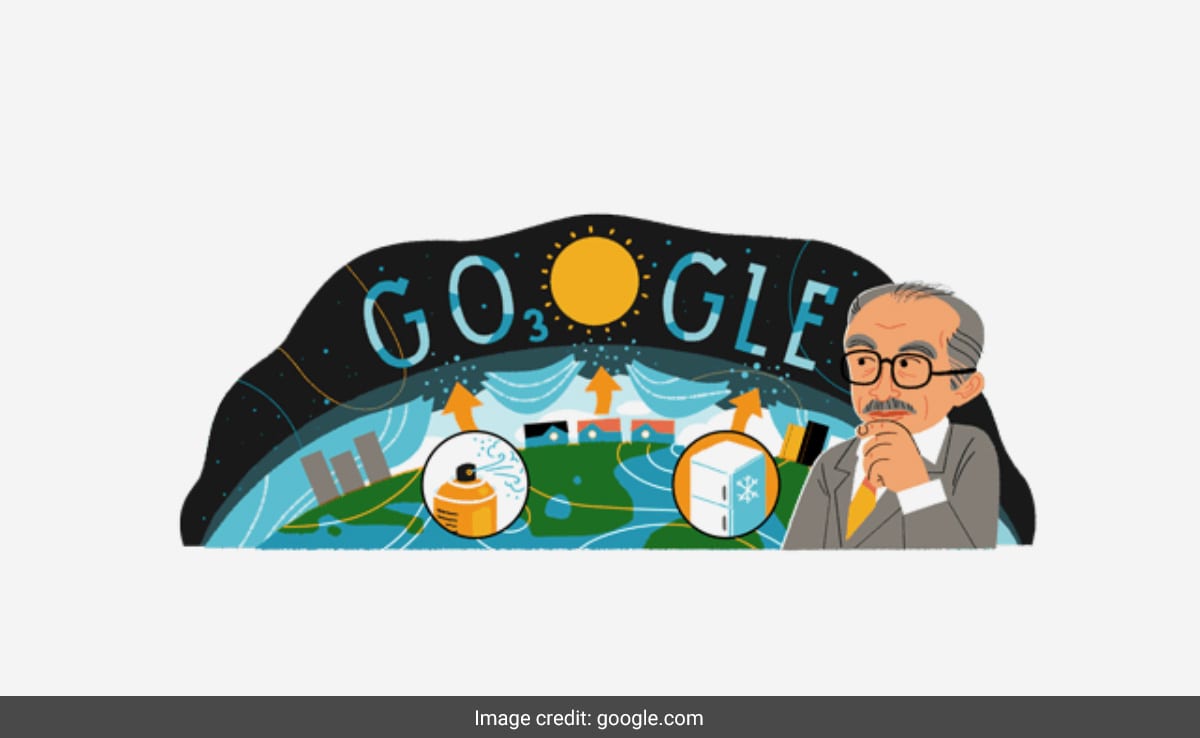
Mario Molina was born on March 19, 1943, in Mexico City
Google on Sunday celebrated the 80th birth anniversary of Dr Mario Molina, a legendary Mexican chemist with a colourful doodle. A co-recipient of the 1995 Nobel Prize in Chemistry, Mr Molina is credited with successfully convincing governments to come together to save the planet’s ozone layer. He was one of the researchers who exposed how chemicals deplete Earth’s ozone shield, which is vital to protecting humans, plants, and wildlife from harmful ultraviolet light.
Mario Molina was born on March 19, 1943, in Mexico City. He was so passionate about science as a child that he turned his bathroom into a makeshift laboratory. Nothing could compare to the joy of watching tiny organisms glide across his toy microscope, noted Google.
”I was already fascinated by science before entering high school. I still remember my excitement when I first glanced at paramecia and amoebae through a rather primitive toy microscope,” Dr Molina wrote in a biography on the Nobel site.
He then went on to earn a bachelor’s degree in chemical engineering from the National Autonomous University of Mexico, and an advanced degree from the University of Freiburg in Germany. After completing his studies, he moved to the United States to conduct postdoctoral research at the University of California, Berkeley, and later at the Massachusetts Institute of Technology.
In the early 1970s, Dr Molina began researching how synthetic chemicals impact Earth’s atmosphere. He was one of the first to discover that chlorofluorocarbons were breaking down the ozone and causing ultraviolet radiation to reach the Earth’s surface.
He and his co-researchers published their findings in the Nature journal, which won them the Nobel Prize in Chemistry in 1995. The groundbreaking research became the foundation of the Montreal Protocol, an international treaty that successfully banned the production of nearly 100 ozone-depleting chemicals.
In 2013, President Barack Obama also awarded Dr Molina the Presidential Medal of Freedom, the highest civilian honour in the US.
Dr Molina died of a heart attack at the age of 77 on October 7, 2020. The Mario Molina Center, a leading research institute in Mexico, carries on his work to create a more sustainable world.